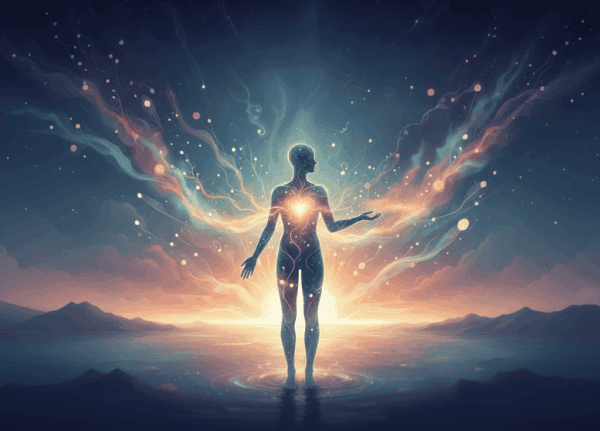In this channeling, Tohar refer to the common misconception circulating in spiritual circles that we must be positive in order to have a positive reality – in other words, to manifest what we want to achieve. Here are their words:
“We are, of course, aware that you are here to expand your range of possibilities – to create more, to be more, and not to settle for what is. We recognize that this part will not be the dominant aspect of how you are aware of and define yourselves, yet we insist that you acknowledge its existence rather than trying to eliminate it.
“Here’s a possibility you might not be used to – you can grow even with a part of you that doesn’t want to grow. You can expand your range of possibilities even when there is a part of you that says, ‘I’m fine where I am’ even if you aren’t truly well. The possibility is that you can change without changing, that you can grow without necessarily having to grow.
“It may sound somewhat illogical, but it works that way. You don’t need to change yourself in order to grow; you simply need to become more aware, and then growth can occur. By making room for the part of you that says ‘no’ as well as the part that says ‘yes,’ you automatically expand your range of possibilities.
“Many people tend to believe that they must focus on one aspect of themselves in order to create a thriving reality – clinging to a vision, sticking to positive thinking, positive words, and positive action. People believe that if they are positive, their reality will be positive. This is a flawed translation of the idea that reality is you, and if you want your reality to be positive – with prosperity, abundance, thriving, health, self-fulfillment, support, help, and love – then you must accordingly be positive, think correctly, feel correctly, and act correctly. In other words, you must be positive.
“This is a flawed translation because if you try to be that way, you must immediately and unequivocally overcome everything you might define as negative – negative thoughts, negative feelings, and negative behaviors. If you try, you quickly find that you’re not very successful, and if you insist, you must invest ever more energy to stay above those negative parts, which seemingly hinder your ability to live and be as you wish. At some point, you may become exhausted by the effort, and then disappointed in yourself and your reality. This can lead to a break in trust – because if what you learned in the realms of development and spirituality doesn’t work for you, then something is wrong either with you or with the spiritual realms. Sometimes, this break in trust is directed at divinity itself, as it turns into an impossible task that you cannot meet, and that certainly says something about how everything works.
“This is a flawed translation because you do not need to be one thing in order to have abundance. For abundance, you need to be abundant – that is, be as you are. Not to be one thing – thinking only in a certain way, speaking only in a certain way, feeling only in a certain way – but to be as you are, even if sometimes you don’t have pleasant thoughts or feelings, even if you don’t always behave in a pleasant way toward yourself or others.
“You struggle so much to grasp the possibility that divinity loves you as you are, until you become convinced that the model by which divinity – and the universe or reality – operates is one of good and evil, reward and punishment: if you’re okay, you receive a reward; if you’re not, you receive punishment. But everything operates on the basis of love – it does not operate on the basis of reward and punishment. Love does not punish.
“If you truly seek to be positive, if you truly wish to adopt an appreciative attitude that sees the good, then you must extend that attitude to every part of yourself, including – and especially – those parts you try to overcome, those parts you attempt to conquer. With regard to them, it is crucial that you see things differently.
“The possibility we offer you at the beginning of this session is that you don’t need to change in order to change. You can be yourself and still live the life you want to live.
“In other words, we suggest that you let go of the effort to be positive and adopt a different approach – one that can simply be described as being authentic, being as you are. When you look at yourself, meet yourself, and experience yourself from such a perspective – which might be defined as an all-encompassing positive or neutral outlook – you see yourself as you truly are. Then you see what within you needs healing.
“Often, you confuse what needs healing with what needs to be changed. Your self-awareness turns into self-criticism, and you may be convinced – and convince yourself – that you are aware of things, but in reality, you are being critical, and then you mark within yourself what needs to be changed.
“You might speak to yourself in a highly developed language, with very spiritual words – about what you must overcome, what to leave behind, what no longer serves you, what isn’t true for who you are meant to be, and so on. The words may be beautiful, but the essence is criticism. We suggest becoming aware of this so that you can more easily recognize when it is criticism masquerading as love and when it is genuine love.
“When you approach yourself and meet yourself with love for yourself – or at least with a neutral stance from which you encounter yourself – you may confront your pains and problems, and you won’t rush to overcome them, release them, leave them behind, give up on them, transform them, or take them into the light or love or divinity so that they might be transformed for you. You won’t rush to do this, as if you had just found some dirt that you are eager to throw into the garbage. You won’t approach yourself and manage yourself with a kind of mental sterility, as if anything that isn’t perfectly clean has no place. Your approach will be different.
“You will discover what needs healing, acknowledge that there is something to be healed, and understand that healing may sometimes be complex and lengthy – and that the fact there is something to heal is far more important than the question of how long it will take you to heal it. It neither diminishes you nor detracts from you, and there is indeed a possibility, a very real possibility, that you can open up even if your consciousness isn’t completely clean, even if it contains problems, flaws, and pains – various things you might identify as dirt that needs to be cleared from the space”.



